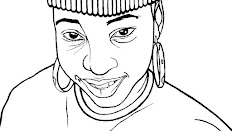While walking, riding or driving around town in the evening, you might hear loud speakers advertising a new Ugandan movie on the market. As you get closer, you are confronted by young people, usually boys or sometimes adults holding out DVDs for you to scrutinize and hopefully buy. I must confess that some have very remarkable poster designs. Other times, promoters on roller skates draw your attention as they come to the window of a taxi you might be in. “It only costs 5,000 UgShs!” the skate-man will seductively tell you. This is a phenomenon I never witnessed regularly in the 1990s even for VHS cassettes or VCDs. At that time, the filming of Ugandan drama was still budding.
The vigorous evolution started when Ugandans got tired of the celluloid colonization and cultural intoxication from Hollywood, Bollywood and Nollywood while the glory of raw unexploited local talent was quite faint on the silver screen. Other notable film influences included Southern Africa (Consequences, Sarafina, Yellow Card), Europe and the Far East (a trend highlighted by the free Japanese Film Festivals). In the 1970s and 80s, the capital (Kampala) had four major cinemas through which the Japa-Chinese invaded the Ugandan film market armed with projector films featuring their kung-fu styled dramas. Since Bruce Lee and his comrades could conquer America, then how about the ‘Pearl of Africa’? They are still crowd pullers in the ‘kibanda’ (Luganda word for ‘video shack’, usually wooden) where most, if not all, movies have voice over translations for the peasant and middle class audience to enjoy. This is the alternative for English captions. The ‘kibanda’ is furthermore friendly to everybody’s pocket. In 2008, any movie whether new or old, could be viewed at a cost as low as 200 UgShs or 100 UgShs in rural areas. Meanwhile, the all powerful City cinemas charged over five to 10 times as much.
Ugandans are beginning to believe that they can also do it. Film clubs can be found in schools doing projects, and in theatres sharing ideas. A local community-based production series ‘That’s Life Mwattu’ popular in the early 1990s can now be viewed anywhere in the world on the continental DStv service’s Africa Magic Channel. Buziga Hill, just outside the capital is being turned into ‘Uganda’s Hollywood’. In addition, talented Ugandan actors like Philip Luswata are taking part in overseas film productions. The Oscar Award-winning film ‘The Last King of Scotland’ for Best Actor (Forrest Whitaker) was shot and produced in Uganda, propelling the country into stardom though other films like Raid on Entebbe, Mira Nair’s Mississippi Masala and an episode of the TV comedy ‘The Steve Harvey Show’ hinted on Uganda. The Amakula Film Festival is also a productive platform for filmmakers plus enthusiasts to share and enjoy the thrill local creativity has to offer. Basically, the future looks bright for the Ugandan film industry (fondly called ‘Kina- Uganda’, Pearlywood and Ugawood) even at this year’s 5th Amakula Festival. East Africa's Maisha Filmlab founded in Uganda by Mira Nair (Tanzanian born Musarait Kashmiri was it's first versatile Program Director in 2005), besides other production houses, annually opens doors for selected applicants to explore the technical makeup of film production and receive expert coaching from accomplished personalities in the wider industry.
With the influx of computers to Uganda, illegal reproduction of movies is a huge business that allows many people to not only own cheap, perfect, digital copies of blockbuster movies but also tamper with their content in creative ways if they wish. Appreciation of foreign films in Uganda has cut so deep that Ugandans now want to export what they have learnt by producing more of their own stories. From Ashraf Ssimwogerere’s Murder in the City to Matt Bish’s Battle of the Souls, quality keeps changing too.
YouTube (interestingly TIME magazine’s Man of the Year 2006), arguably the Most Fantastic Website that allows individuals to upload their videos for the world to see, is also a powerful tool some Ugandans are using to good effect to, for instance, promote their music idols like Tanzania-based Ugandan Ziggy D. All you need to do is get a camera and start shooting creatively. Then you create an account and upload your video on the internet’s gift to filmmakers.
The music industry does not want to exist without video. That is why some of the big artistes such as Bobi Wine have ventured beyond videos for their songs to working on feature length films and commercials. The relationship is mutually strong; movies would be meaningless to some film buffs without soundtracks. Imagine Titanic without Celine Dion, maybe some lovers would not cherish the movie. Trust me, 2 Fast 2 Furious without Ludacris’ promotional hit by the same title (Sub-title: ‘Act a Fool’) would just be too ludicrous to some people. Enjoy the 2008 Amakula Kampala Film Festival, it’s truly a "Parallel Universe"!
GODisgreat! Welcome to my Atelier [Design Workshop]! Pay or donate via +256-781-345712 (Edward); awa'difo! From Busoga to Buganda to Lugbaraland and beyond, Art is my life. #JESUSistheWay...
JESUS Christ Quotes

JESUS is the Way...
The Y-Corner (411)

Either you go left or go right...
Self Portrait

An inking of myself in Twenty23...
Maracha View

Rock my world...
Elekitoro Komisoni Ongu [EC Race] 2021
![Elekitoro Komisoni Ongu [EC Race] 2021](https://blogger.googleusercontent.com/img/b/R29vZ2xl/AVvXsEjAo2xbJR5ARnWe_U1As57tS-D9aSdj6KR1hY01W8yFB1zNRGcVVQy9lDHv6mZFOBYCWrohl9bjA538bXyUrERcUNs9HVPvuR1_-jXCuI-npTMsKM4SxPul3mEZG8NDky0RotfGX5XqawQ/)
Ma Prezidenti ni ini, te eri ma basi woro yelo [Lugbara Translate: My President is black, but his bus is all yellow]...
Peace & Prudence (2016 Logo Revamp)

Drew this Council Emblem in anticipation of Arua's transition from municipality to city which happened four years later; it was emblazoned on the West face of the 2021 Arua Central Market...
Tumusiime Family (Portrait)

When you want Ugatoons for your loved ones, just reach out to Mr. Aiko (+256-781-345712)...
Time Shield

Mashup summary of lessons learnt from Agriculture, Architecture and Art. There is nothing under the sun that cannot be discussed in 100 words...
Xnthi

This beauty inspired me to restudy my mother tongue becoz I couldn't believe the infinitely-sweet fluency with which she spoke it during her preteens (6-11 years old)...
Synthetic Artificial Lugbara Translation

Ojapi: Transcribe, translate, chat (+256-781-345712)...
Filipino (2020 Portrait)

The colour mix is truly lovely...
Engato Store (2020 Logo Design)

I made this logo for (my 2nd cousin) Edwin Paratra's shoe-selling hustle...
Elita + Onya (2021 Portrait)

A couple residing in Lusaka, Zambia...
Nda azini Isu
Blog Archive
-
▼
2008
(106)
-
▼
February
(24)
- Why Ugandan fans hate Adebayor...
- My LOVE AFFAIR with JINJA
- Let's Meet in Kampala 2007
- 2007 KADS Backdrop Trivia...
- Promoting Evidence-based Leadership
- 'oneway' to Heaven
- Do you want to stay Alive?
- Hotel Arua (Lyrics)
- The Best Thing in Life
- Always Remember your Lecturers and Tutors
- UCIFA Day Enhances Professionalism
- UgaWood's Film Evolution
- Rendezvous with …OMAR KASSIM
- TOURISM: Uganda-Gifted By Stature
- Does Port Mombasa have adequate capacity?
- Calypso-Trinidad’s Folk Music rocks Uganda
- My 15 Minutes of Fame
- 2007 UTL Business Forum
- Marketers Nite Out (April 2007)
- African Woman Magazine
- Why is Africa backward?
- Gaagaa’s Gender Revolution
- Focussed Madness (2 Articles in 1)
- Aiko's First Day on the BlogSite
-
▼
February
(24)
Ojapi

Where the Old and New meet...
Aiko TV

Designs & Portraits...
Most Viewed Posts
-
The Motion for URA’s inaugural Open Minds’ Forum at Hotel Africana’s Nile Conference Hall in January 2008 was: “It is the Sole Responsibilit...
-
‘DO you own a small or medium business’? That could mean less or just more than 5 employees. If yes, then you should have attended the three...
-
(Eric [in a skyblue shirt] chats with a lady) BEWITCHINGLY RYTHMIC ASKED why his Art pieces focus mainly on women, he replied that he wa...
-
Ugatoons One of the Most Complicated and Painstaking Visual Arts is 3D Animation, a Twin Sister to CGI used in Movies. Before the Turn of t...
-
Uganda is blessed with many inspired Church designs from East to West, North to South eg St. Andrew's Church of Uganda Jinja, St. Andrew...
-
She Wore A Green Attire (SWAGA) by Aiko... GOD is great, first and foremost! In Chinese language (Putonghua), a Cartoon is called "Manh...
-
James Nyakuni, one of the richest people in Uganda, is known for the fleet of white GaaGaa buses that ply the Kampala - West Nile route. He ...
-
I spent the first Decade of my Life (January 1984 to May 1995) mainly in Jinja and got to hear about a lucky Lady from around there who went...
-
Lugbara AI I was born in Jinja (1984) and grew up in KLA City (since 1995), so I learnt most of my first Lugbara vocabulary through my ears....





